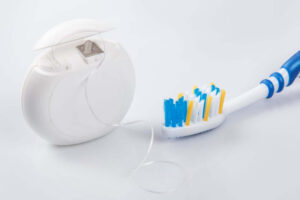 As parents, we want to provide the greatest care for our children, considering all facets of their well-being, including their oral health. Children typically experience dental problems such as dental caries or cavities in their teeth. These cavities can significantly affect their overall health and create pain and discomfort. Understanding the causes of cavities in children’s teeth is crucial to prevent them. In this blog, our pediatric dentists in Lowell will discuss five common dental issues that lead to kids’ cavities and offer solutions to help your child maintain a healthy smile.
As parents, we want to provide the greatest care for our children, considering all facets of their well-being, including their oral health. Children typically experience dental problems such as dental caries or cavities in their teeth. These cavities can significantly affect their overall health and create pain and discomfort. Understanding the causes of cavities in children’s teeth is crucial to prevent them. In this blog, our pediatric dentists in Lowell will discuss five common dental issues that lead to kids’ cavities and offer solutions to help your child maintain a healthy smile.
The Centre for Disease Control (CDC) showed that 42% of kids between the ages of 2 and 11 had cavities in their baby teeth, while an additional 21% of kids in the same age range had cavities in their permanent teeth.
But is there a way to keep the cavity beast at bay? Absolutely!
What are Cavities and their Causes
Tooth decay, or cavities, are among the oral health issues that affect many children the most frequently. Some factors that cause them include poor dental hygiene, poor eating habits, and bacterial activity in the mouth. Due to oral bacteria that feed on sweets and produce acids that erode tooth enamel, children who consume sugary meals and drinks are more prone to cavities.
The development of dental hygiene practices, an affinity for sweet meals, and a lack of awareness of the significance of oral health make children particularly vulnerable to cavities. The enamel of baby teeth, commonly called primary teeth, is thinner than permanent teeth, leaving them more vulnerable to decay.
The bacteria responsible for cavities are often called “sugar bugs,” although they are formally known as bacteria. While certain bacteria are naturally found in our bodies, others formed by the food we eat might cause tooth decay.
In addition to bacteria produced by sugar, other factors can contribute to cavities in children, including:
- Consuming carbohydrates and starches
- Inadequate brushing and flossing
- Insufficient fluoride intake
- Excessive snacking, juice consumption, and intake of other sweets
- Reduced saliva flow
- When excess bacteria and acid production combine, it results in tooth decay, commonly known as cavities.
What Happens When a Cavity Forms?
A cavity in a child’s tooth can lead to various consequences and dental health issues. Here are some of the common effects of cavities in children’s teeth:
1- Tooth Sensitivity: As a cavity progresses, it can cause increased tooth sensitivity. Children may experience discomfort or pain when consuming hot, cold, or sweet foods and beverages. This sensitivity can impact their ability to eat and drink comfortably.
2 – Toothache: Cavities that reach deeper layers of the tooth can cause persistent or intermittent toothaches. Children may experience sharp or throbbing pain around the affected tooth, making concentrating or engaging in daily activities difficult.
3 – Dental Infections: If a cavity is left untreated, the decay can penetrate the tooth’s pulp, where the nerves and blood vessels are located. This can lead to dental infections, causing symptoms like severe pain, swelling, and even facial abscesses. Infections require immediate dental attention to prevent further complications.
4 – Abscess Formation: In some cases, a cavity that progresses into an infection can result in the formation of an abscess. An abscess is a pus-filled pocket that forms at the tooth’s root or surrounding gum tissue. If left untreated, it can cause severe pain, swelling, and even systemic infections.
5 – Damage to Permanent Teeth: Baby teeth play a crucial role in developing permanent teeth. If left untreated in primary teeth, cavities can spread and affect the underlying permanent teeth. This can lead to tooth alignment, spacing, and oral health issues as the child grows.
6 – Impact on Overall Health: Oral health is closely linked to well-being. Cavities in children’s teeth can affect their quality of life, leading to difficulties with eating, speaking, and social interactions. Dental pain and infections can also interfere with sleep patterns and concentration, affecting a child’s overall physical and mental well-being.
It is essential to address cavities in children’s teeth promptly to prevent further damage and complications. Regular dental check-ups, proper oral hygiene practices, a balanced diet, and timely treatment of cavities are key to maintaining good oral health and ensuring the well-being of children.
Tips for Improving Oral Hygiene in Children
To help children fight cavities effectively, improving their diet and oral hygiene practices is crucial. Caregivers play a vital role in promoting better tooth-cleaning habits by:
1 – Demonstrating Techniques: Give your child a tutorial on properly using a toothbrush and floss.
2 – Supervising Younger Children: Children between the ages of 2 and 6 require assistance until they establish a consistent oral care routine.
3 – Monitoring Toothpaste Amount: Using a pea-sized amount of toothpaste for each brushing session is recommended.
4 – Twice a Day Routine: Encourage children to brush their teeth twice daily for at least 2 minutes, which is approximately the time it takes to sing “Happy Birthday.”
Additionally, apart from maintaining optimal oral hygiene practices and limiting the consumption of juice, sweets, and starches, there are other preventive measures that your dentist may suggest to avoid cavities in children. For instance, at Kangaroo Smiles, Dr. Mona may recommend applying sealants to protect teeth and prevent the formation of cavities.
Conclusion
Alongside these preventive measures, professional dental care is essential for comprehensive oral health. Kangaroo Smiles, a dental practice specializing in pediatric dentistry, offers expert care for children in Lowell and Methuen, MA. Their dedicated dentists, like Dr. Mona, are trained to provide specialized treatment for kids, ensuring a comfortable and positive dental experience.
If you’d like to learn more about preventing cavities in children or scheduling an appointment with us, please contact us today at 978-425-1496.


